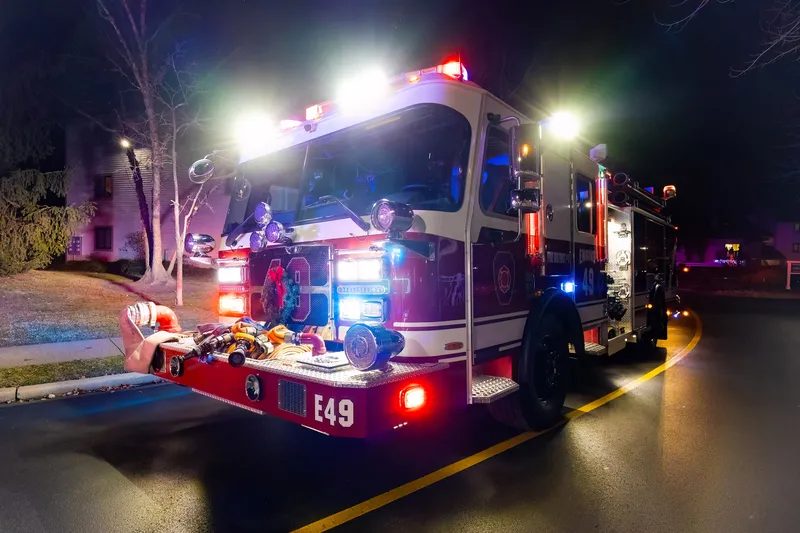The 2015 urban mobility scorecard for the US, published jointly by the Texas A&M Transportation Institute and Inrix, indicates that urban areas of all sizes are experiencing the challenges seen in the early 2000s and population, jobs and therefore congestion are increasing. The US economy has regained nearly all of the nine million jobs lost during the recession and the total congestion problem is larger than the pre-recession levels.
Cities of all sizes are experiencing the challenges last seen before t
August 26, 2015
Read time: 3 mins
The 2015 urban mobility scorecard for the US, published jointly by the Texas A&M Transportation Institute and 163 Inrix, indicates that urban areas of all sizes are experiencing the challenges seen in the early 2000s and population, jobs and therefore congestion are increasing. The US economy has regained nearly all of the nine million jobs lost during the recession and the total congestion problem is larger than the pre-recession levels.
Cities of all sizes are experiencing the challenges last seen before the start of the recession, meaning increased traffic congestion resulting from growing urban populations and lower fuel prices outpacing the nation’s ability to build infrastructure. The result, the average travel delay per commuter nationwide is more than twice what it was in 1982. For cities of less than 500,000 people, the problem is four times greater than in 1982.
With recent data from the324 US Department of Transportation showing Americans vehicle miles travelled has surpassed the pre-recession peak in the last 12 months, Scorecard report authors say the US needs more investment in infrastructure to meet demands of population growth and economic expansion.
Scorecard report authors state that road building alone can’t solve congestion problems. Solutions must involve a mix of strategies, combining new construction, better operations, and more public transportation options as well as flexible work schedules.
Some other key highlights from the scorecard include: Washington, DC tops the list of gridlock-plagued cities, with 82 hours of delay per commuter, followed by Los Angeles (80 hours), San Francisco (78 hours), New York (74 hours), and Boston (64 hours).
Drivers on America’s Top 10 worst roads waste on average 84 hours (or 3.5 days a year) in gridlock, twice the national average. Of these roads, six are in Los Angeles, two are in New York and the remaining two are in Chicago. Nine other cities have roads ranked in the top 50.
The report concludes that states and cities have been addressing the congestion problems they face with a variety of strategies and more detailed data analysis. Some of the solution lies in identifying congestion that is undesirable – that which significantly diminishes the quality of life and economic productivity – and some lies in using the smart data systems and range of technologies, projects and programs to achieve results and communicate the effects to assure the public that their project dollars are being spent wisely.
Cities of all sizes are experiencing the challenges last seen before the start of the recession, meaning increased traffic congestion resulting from growing urban populations and lower fuel prices outpacing the nation’s ability to build infrastructure. The result, the average travel delay per commuter nationwide is more than twice what it was in 1982. For cities of less than 500,000 people, the problem is four times greater than in 1982.
With recent data from the
Scorecard report authors state that road building alone can’t solve congestion problems. Solutions must involve a mix of strategies, combining new construction, better operations, and more public transportation options as well as flexible work schedules.
Some other key highlights from the scorecard include: Washington, DC tops the list of gridlock-plagued cities, with 82 hours of delay per commuter, followed by Los Angeles (80 hours), San Francisco (78 hours), New York (74 hours), and Boston (64 hours).
Drivers on America’s Top 10 worst roads waste on average 84 hours (or 3.5 days a year) in gridlock, twice the national average. Of these roads, six are in Los Angeles, two are in New York and the remaining two are in Chicago. Nine other cities have roads ranked in the top 50.
The report concludes that states and cities have been addressing the congestion problems they face with a variety of strategies and more detailed data analysis. Some of the solution lies in identifying congestion that is undesirable – that which significantly diminishes the quality of life and economic productivity – and some lies in using the smart data systems and range of technologies, projects and programs to achieve results and communicate the effects to assure the public that their project dollars are being spent wisely.









